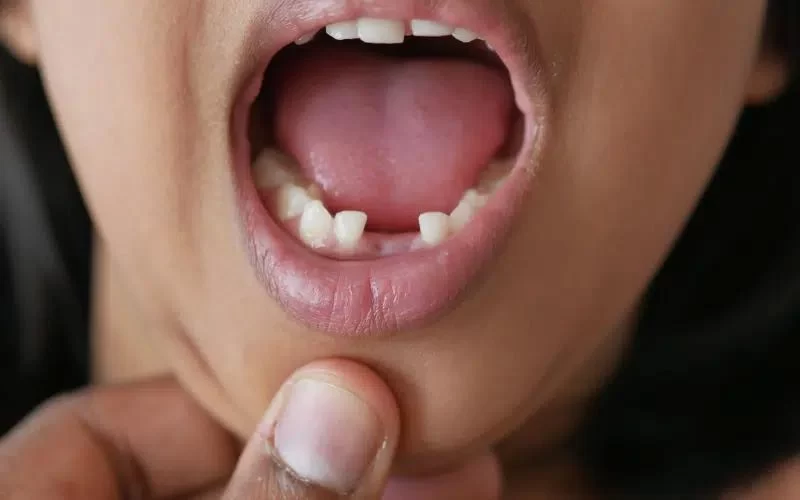
How to Handle a Knocked-Out Tooth After a Dental Injury: A Comprehensive Guide
- Immediate Actions to Take After a Tooth Is Knocked Out
- How to Properly Preserve a Knocked-Out Tooth
- The Importance of Emergency Dental Care for Reimplantation
- Aftercare and Long-Term Considerations for a Knocked-Out Tooth
1. Immediate Actions to Take After a Tooth Is Knocked Out
Experiencing a knocked-out tooth can be alarming, but it's essential to stay calm and take swift action. The first step is to locate the tooth as quickly as possible. Handle the tooth by the crown (the top part) and avoid touching the root. If the tooth is dirty, rinse it gently with clean water but never scrub or use soap.
Next, try to reinsert the tooth into its socket if it's not too painful or damaged. Bite down gently to hold it in place. If reimplantation isn't possible, place the tooth in a cup of milk, saline solution, or even your own saliva. The key is to keep the tooth moist until you can get to a dentist.
2. How to Properly Preserve a Knocked-Out Tooth
Preserving the knocked-out tooth correctly is critical for a successful reimplantation. The best method is placing the tooth in milk. The calcium and nutrients in milk help preserve the cells on the root surface. If milk isn't available, saline solution can also work, or in a pinch, you can keep the tooth in your mouth (between your cheek and gums).
Avoid using water for long periods as it can damage the delicate cells of the tooth root. The sooner you can get to an emergency dentist, the better the chances of saving the tooth. Timing is key—ideally, you want to see a dentist within 30 minutes to an hour after the injury.
3. The Importance of Emergency Dental Care for Reimplantation
Time is of the essence when dealing with a knocked-out tooth. Ideally, the tooth should be reimplanted as soon as possible, but even if hours have passed, your dentist might still be able to save the tooth through advanced techniques like splinting or other surgical procedures. Emergency dental care is crucial not just for reimplantation but also for preventing infection and ensuring proper healing.
Dental trauma specialists or emergency dentists are trained to handle such injuries and will assess the damage to the tooth and surrounding tissues. They may also take X-rays to evaluate the extent of the injury and determine the best course of action.
4. Aftercare and Long-Term Considerations for a Knocked-Out Tooth
Once your tooth has been successfully reimplanted, aftercare is critical for recovery. You may be advised to avoid biting down on the affected tooth for several weeks, as it needs time to reattach to the bone. Regular follow-up visits to your dentist will be necessary to monitor the healing process and ensure the tooth is reestablishing itself properly.
In some cases, the tooth may not survive the trauma, and the dentist may recommend a replacement option such as a dental implant, bridge, or denture. Be sure to discuss long-term options with your dentist to ensure the best outcome for your dental health.
Experiencing a dental injury can be overwhelming, but knowing how to handle a knocked-out tooth can significantly improve your chances of saving it. If you've experienced dental trauma or need expert guidance on handling dental emergencies, visit Dentistry Toothtruth for trusted advice and solutions.
Ready to protect your smile? Learn more about emergency dental care and the latest treatments for tooth replacement at Dentistry Toothtruth.







 Absolute Dental - Maryland Pkwy4.0 (580 review)
Absolute Dental - Maryland Pkwy4.0 (580 review) United Smiles4.0 (66 review)
United Smiles4.0 (66 review) Gold Coast Dental - Riverside3.0 (65 review)
Gold Coast Dental - Riverside3.0 (65 review) Amana Dental3.0 (34 review)
Amana Dental3.0 (34 review) Savage Success | Rhonda Savage DDS1.0 (1 review)
Savage Success | Rhonda Savage DDS1.0 (1 review) Rota Advanced Dental Care4.0 (118 review)
Rota Advanced Dental Care4.0 (118 review) The Importance of Oral Health Education During Pregnancy for a Healthy Pregnancy
The Importance of Oral Health Education During Pregnancy for a Healthy Pregnancy Best Tips for Brushing Your Teeth Properly for Healthy Gums: Essential Techniques for Oral Health
Best Tips for Brushing Your Teeth Properly for Healthy Gums: Essential Techniques for Oral Health Why Skipping Dental Checkups Can Lead to Bigger Oral Health Problems
Why Skipping Dental Checkups Can Lead to Bigger Oral Health Problems Advantages of Porcelain Dental Restorations
Advantages of Porcelain Dental Restorations How Can Diabetes Cause Tooth and Gum Problems? Preventing and Managing Oral Health Issues
How Can Diabetes Cause Tooth and Gum Problems? Preventing and Managing Oral Health Issues Healthy Habits for Promoting Good Oral Health and Hygiene: Tips for a Healthy Smile
Healthy Habits for Promoting Good Oral Health and Hygiene: Tips for a Healthy Smile